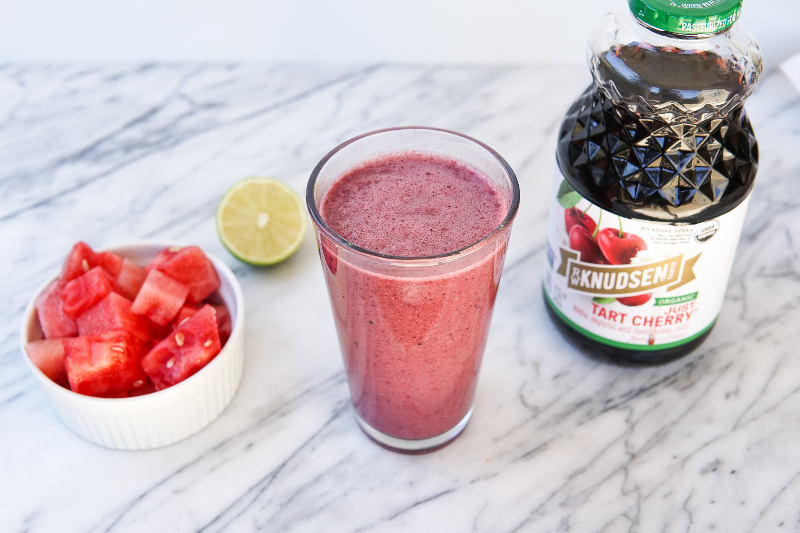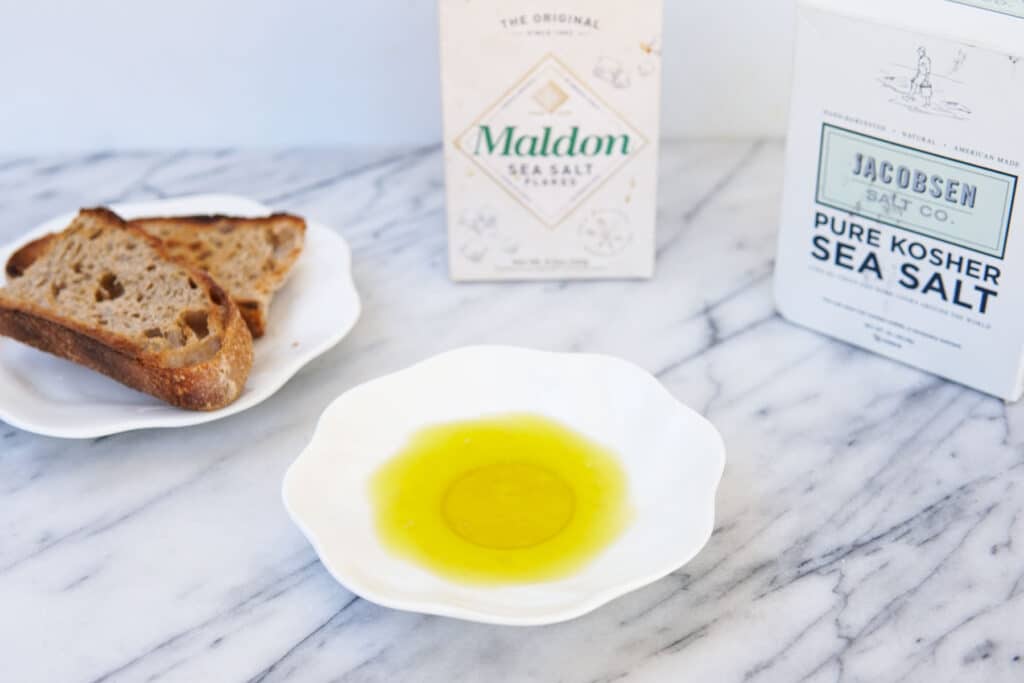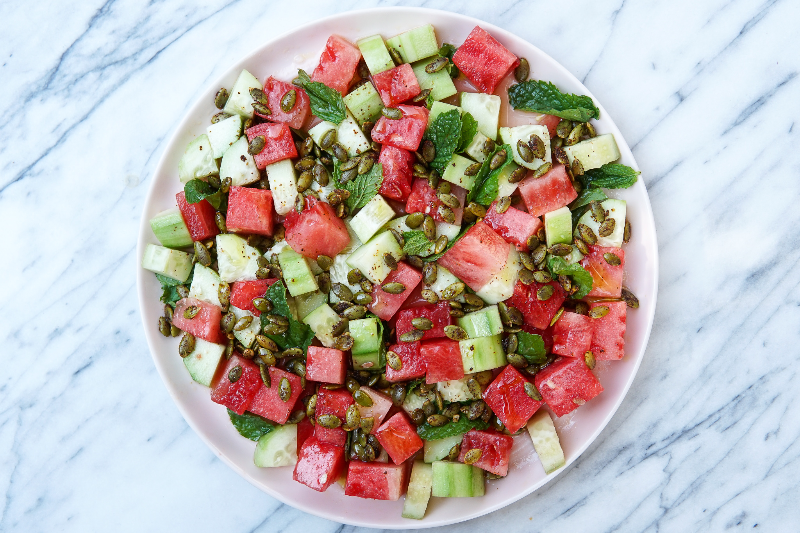Electrolyte guide: what are they, where do you find them, and do you need them?

Since summer is right around the corner and we’re all about to start sweating a lot more, I thought it would be a good time to learn about electrolytes! You can find electrolyte products everywhere these days – from sports drinks, juices to powders and supplements. But do you really need them? Let’s go over […]
Since summer is right around the corner and we’re all about to start sweating a lot more, I thought it would be a good time to learn about electrolytes!
You can find electrolyte products everywhere these days – from sports drinks, juices to powders and supplements. But do you really need them? Let’s go over the basics.
What are electrolytes?
Electrolytes are minerals that are essential for all of your basic bodily functions. Rightly named, these minerals carry an electric charge that regulates important chemical reactions in your body. They’re super important for proper hydration, fluid balance, overall energy, hormone and immune function, muscle contractions, and so much more.
Most important electrolytes
- Sodium: needed for fluid balance and nutrient absorption. It is the most abundant in the body.
- Potassium: works in conjunction with sodium and is important for heart health.
- Magnesium: essential for the brain, muscles, nerves, and heart to work properly. It’s also important for getting restful sleep.
Other electrolytes include calcium, phosphate, bicarbonate, and chloride. Majority of people easily get enough of these minerals through food, which is why you don’t find them in most electrolyte supplements.
Each electrolyte has it’s own purposes, but they all work together to make sure our bodies function optimally. It’s most important that our bodies have the proper BALANCE of these electrolytes to support our tissues, nerves, and muscles.
How do we lose electrolytes?
You can find electrolytes in all of our bodily fluids – blood, urine, and sweat. You also lose them from vomiting or diarrhea. So if you have a super sweaty workout or it’s just really hot out, you’re losing electrolytes at a faster rate (that’s why sweat is so salty, you’re losing a lot of sodium). This can make you tired, dehydrated, irritable, nauseous, and cause muscle cramps. So if you’ve ever gone for a long run or been out in hot weather for too long and started to feel really thirsty, nauseous and/ or tired, it’s likely due to an electrolyte imbalance, which water alone won’t cure.

I experienced this after running the Boston Marathon in 2012 (the year of record heat!!). I was nauseous, dizzy, and slightly incoherent, as you can see in this photo haha (classic hyponatremia). After drinking water and eating a slushy to no avail, my Dad finally called my sister who told him to go buy me saltine crackers. The moment I ate a cracker, I perked right up. The magic of salt!
Where can we find electrolytes?
You can find electrolytes naturally occurring in foods, but it can be hard to get enough magnesium and potassium just through diet. In general, nuts/seeds, legumes, leafy greens, and fruit are great sources of electrolytes, but below is a bit more of a specific list.
- Sodium – salt, coconut water, and salty foods (pickles, smoked salmon, cheese, etc…)
- Potassium – fruit (summer melons, nectarines, bananas, papaya, mango, cherries, avocado), coconut water, potatoes, beets, spinach, beans, salmon, dairy products, meat/poultry
- Magnesium – grains, nuts/seeds, leafy greens, fish, beans, grains, avocados
Let’s talk more about salt…

Salt is made up of sodium and chloride and sodium is the electrolyte we lose most through sweat. Some people get freaked out by the large amount of sodium (salt) in electrolyte supplements, but these supplements are specifically formulated to provide a balanced mix of electrolytes. It’s that ratio of those three electrolytes that is important.
The overconsumption of salt is mostly from eating out and/or eating a lot of processed foods. If you’re cooking most of your meals from home and not eating many processed foods, then you don’t have to worry about overconsumption, unless you have a medical condition.
If you’re properly salting your food, then you are likely getting enough salt everyday.
However, if you’re sweating a lot (from a workout or hot humid climate) or if you’re sick (vomiting and/or diarrhea), then just properly salting your food might not be enough.
Learn more about salt and best salt for cooking: Salt 101
Do you need to supplement with electrolytes?
Not everyone needs an electrolyte supplement all the time. They are more geared towards athletes and people who do long and hard workouts. If you exercise for over 60 minutes, do high intensity workouts, or exercise in a hot/humid climate, then you could benefit from a supplement.
It also depends on the season! Once summer rolls around, we generally spend more time in the heat and have sweatier workouts, then electrolyte replacement can be super helpful for a lot of people.
You could DIY an electrolyte drink or use the more convenient option – a powder supplement. When looking for an electrolyte supplement or drink, you have to watch out for large amounts of sugar. This is one of the reasons why I love LMNT – it’s a powder you can mix into water, it doesn’t use sugar, and has a balanced ratio of sodium, potassium, and magnesium.
Yes, it is possible to get in plenty of electrolytes through food, but for times when you aren’t prepared, it’s helpful to have a supplement on hand.
Electrolyte boosting recipes

Below are some Cooking Club recipes that are great for replenishing your electrolytes after a sweaty workout or hot and humid summer day.
- Orange Mango Creamsicle Smoothie
- Chocolate Cherry Peanut Butter Smoothie
- Strawberry Recovery “Milkshake”
- Watermelon Recovery Smoothie
- Peachy Mango Cucumber Coolers
- Watermelon Limeade
- Watermelon Cucumber Salad with Chili Seeds
- Melon Mozzarella Avocado Cucumber Salad
- Double Melon Feta Salad with Prosciutto
- Creamy Spinach Potato Soup with Spiced Seeds
- Kale Farro Tahini Caesar Salad
- Chicken Sweet Potato Kale Skillet
- Avocado Lime Tarts
- Strawberry Lemon Balls
Final takeaways
If you’re eating a well rounded diet with fruit, veggies, nuts, seeds, beans, dairy, meat/seafood, then you probably don’t need to worry too much about your electrolytes. The majority of the Cooking Club recipes revolve around those food groups, so if you’re using the recipes and following that general “Mediterranean-style” way of eating, then you’re doing it right.
If you fall into any of the categories below, you should make more of an effort to consume enough electrolytes (either through food or a supplement).
- If you exercise for 60 minutes or more, do high-intensity exercise, or exercise in hot and humid conditions.
- If you’re sick (fever, nausea, vomiting).
- If you live or spend time in a hot climate (tropical vacation, hot humid summers, etc…).
- If you’re just a heavy sweater in general.
I hope this blog post cleared up any confusion around electrolytes! It’s always good to just have a stash of electrolyte packets or tablets on hand in case you find yourself in any of the above scenarios.
If you have any questions or comments, comment below!


leave your comments!